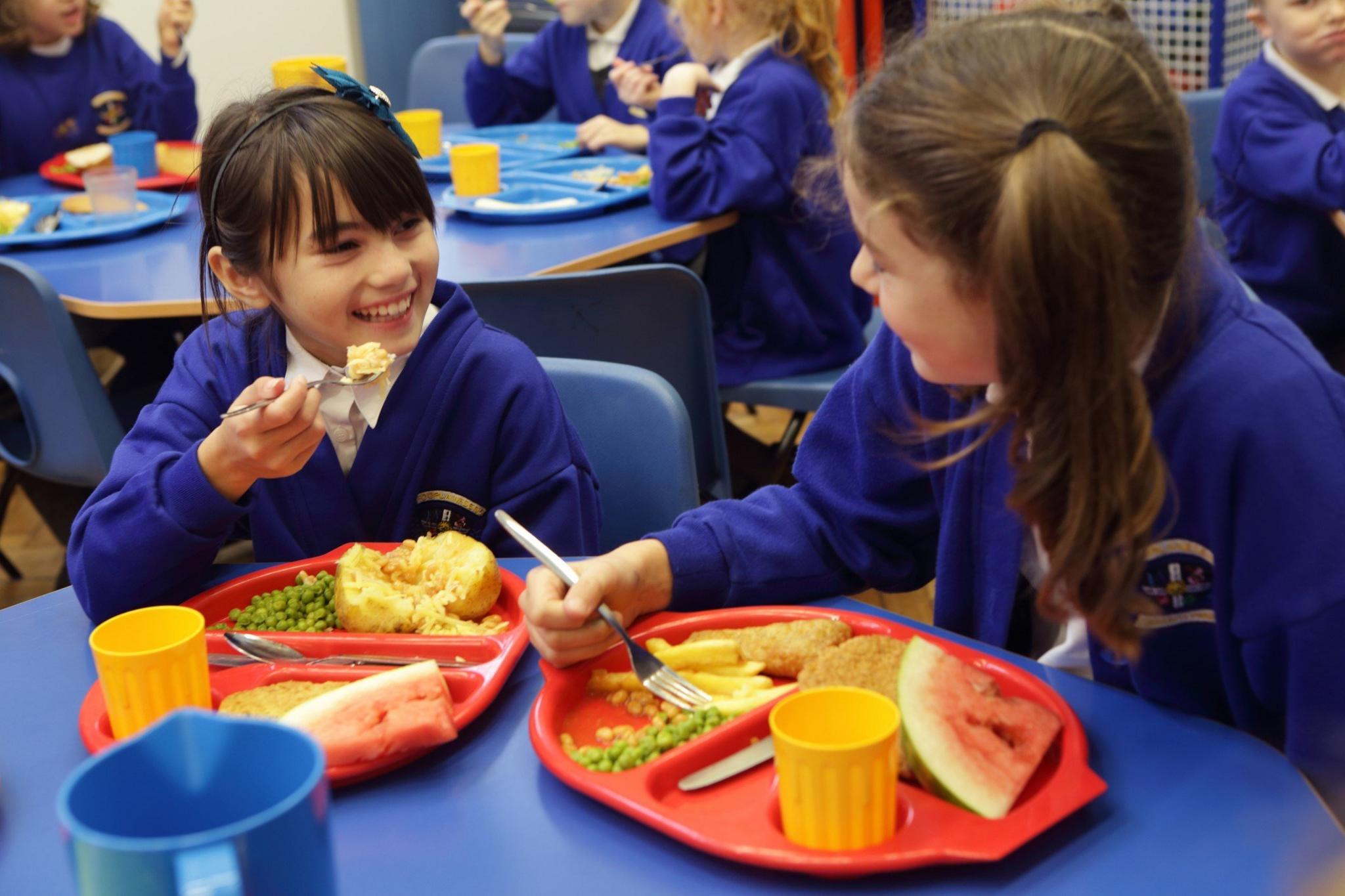Give more pupils free school meals, teachers in England say
- Published
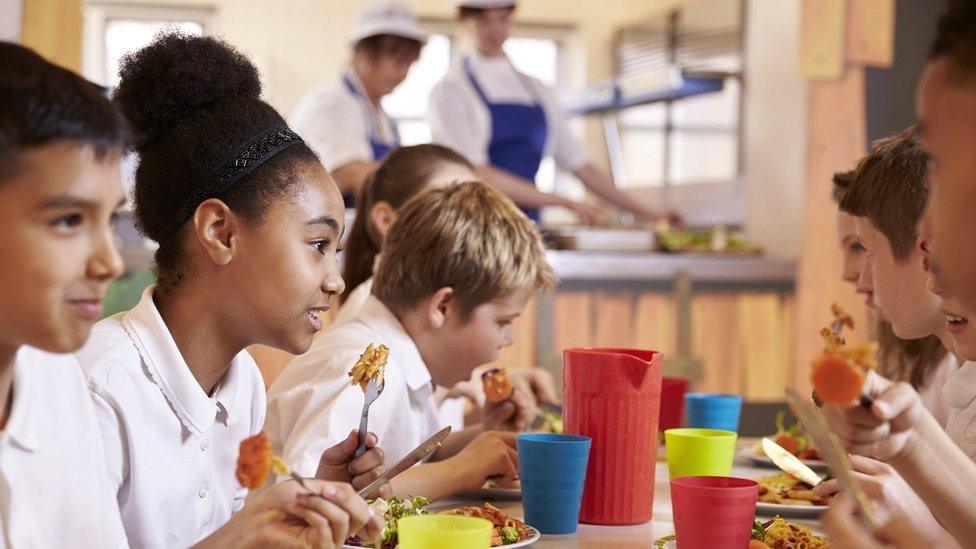
One in five pupils in England are eligible for free school meals, according to the most recent data
More children should be given free school meals to help tackle the "devastating reality" of the cost of living crisis in England, teachers say.
All children from families who receive universal credit should be eligible as part of an "urgent" expansion of the scheme, 11 educational groups said in a letter seen by the BBC.
Around one in five pupils - 1.7 million children - receive free school meals.
The government said it recognised households were struggling.
It said it had expanded access to the meals more than any other government in recent decades.
The prices of food, fuel and other goods have surged in recent months in the UK, pushing inflation - the rate at which prices rise - to a 40-year high.
Measures the government have announced to try to tackle the rising cost of living include a £400 energy bill discount for every household.
'Barrier to learning'
But the joint letter, sent to Chancellor Rishi Sunak and Education Secretary Nadhim Zahawi by education unions and other organisations claiming to represent one million school staff in England, said vulnerable children not receiving free school meals were facing a "real barrier to learning".
"We see the devastating reality of children coming to school unable to afford to buy lunch, because their family circumstances means they fall outside the restrictive free school meal eligibility criteria," it said.
In England, all infant state school pupils up to Year Two can get free school meals during term time.
For English pupils in Year Three and above, those living in households on income-related benefits (such as universal credit) are eligible, as long as their annual household income does not exceed £7,400 after tax. That figure does not include welfare payments.
In Northern Ireland the cap is set at £14,000 a year.
Scotland and Wales have recently committed to rolling out free school meal provision to all primary pupils.
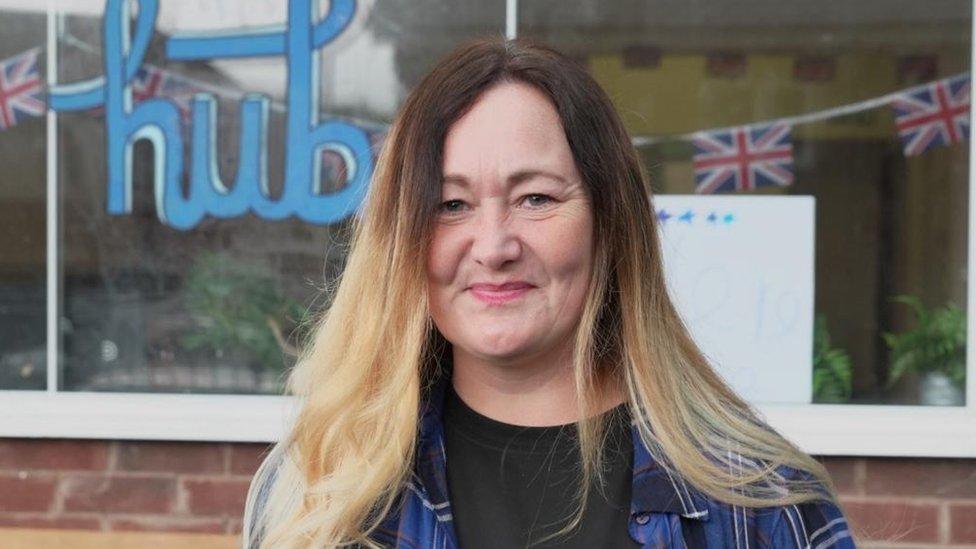
Rachel Bresnahan runs a free holiday club in Stockport, to help children stay well-fed during half-term
The latest call for change follows footballer Marcus Rashford's successful campaign to extend free school meal vouchers into school holidays during the pandemic.
An estimated 2.6 million children in the UK live in households that missed meals or struggled to access healthy food during April, according to data from the Food Foundation charity.
Rachel Bresnahan, who works for a community group in Stockport, the Cherry Tree Project, told BBC News many people who rely on the project live in food poverty, but their children are not eligible for free school meals.
"Our food banks have always run in the mornings, and suddenly people are asking if they can come at night - because people who are working full-time still can't make ends meet," she said.
Parents skipping meals
Emma, who wants to remain anonymous, says she and her husband were both on universal credit, but their eight-year-old son does not qualify for free school meals.
The mother-of-three, from Kent, says she hasn't eaten three meals a day for months because she wants to make sure she can afford food for her son and other younger, pre-school children.
"A few weeks back my eight-year-old got two bowls out for breakfast and I said: 'Don't have two bowls, that is just being greedy,' and he said: 'They're not both for me mum, one of them is for you as I haven't seen you eat in days.'," she told BBC Radio 4's Today programme.
Emma, who currently has three jobs, says she pays £70 every six weeks to cover the cost of school dinners for her son: "It is expensive and with all the other price increases that we are facing now, it is just one big headache."
Dr Nick Capstick, head teacher of Drove Primary School in Wiltshire and a signatory to the letter, says children are missing more school because of "illness and poor oral hygiene caused by inadequate diet".
Dr Capstick, who is also chairman of an independent working group, the School Food Review, told the Today programme: "It's increasingly common that children will come in having not eaten from the night before and also being quite confused, disorientated, and really lacking in energy to have a really productive day at school.
"Universal free schools meals is a simple way of eradicating this situation."
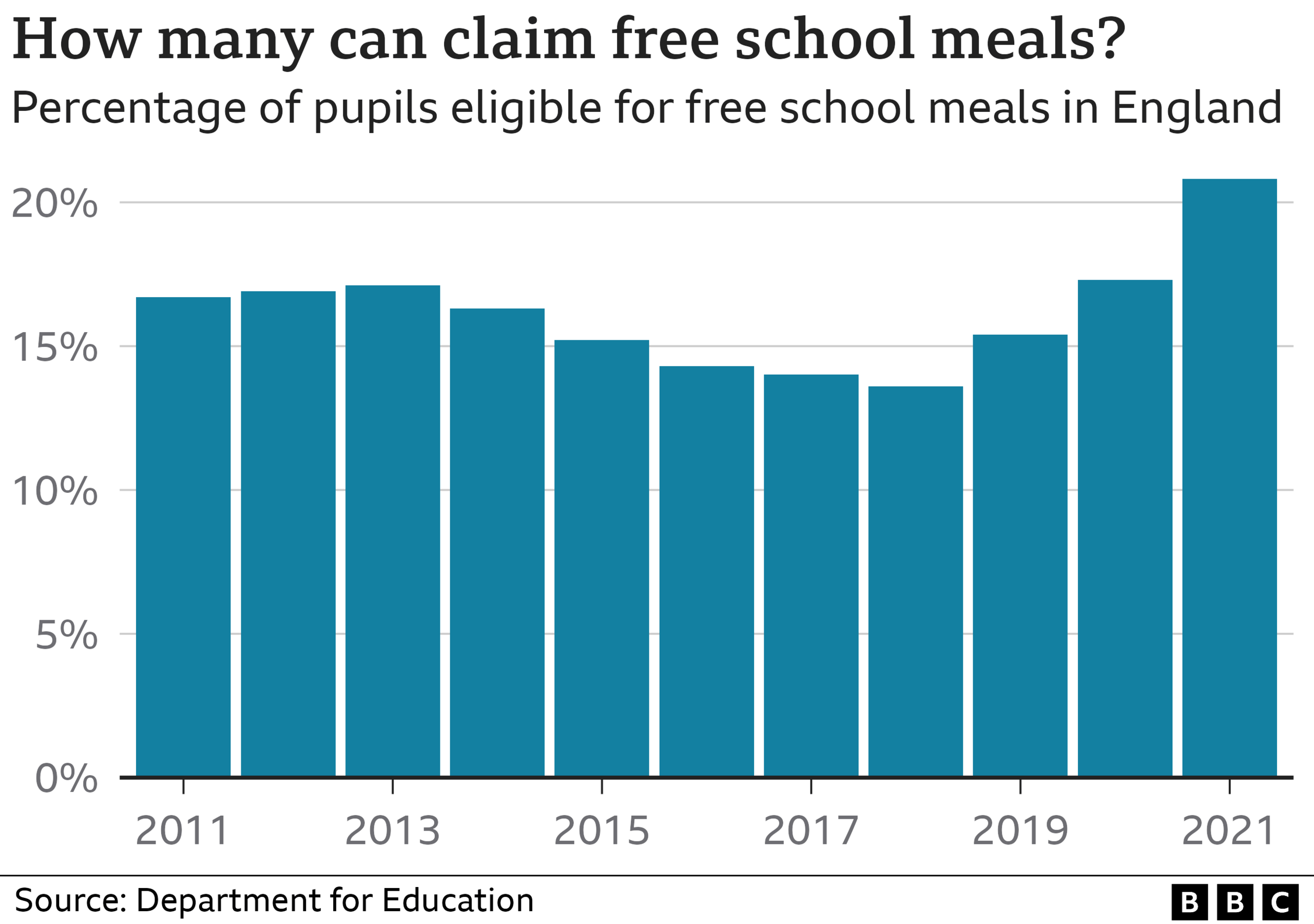
Other signatories to the letter include leaders of the Association of School and College Leaders (ASCL), the National Education Union (NEU), the National Association of Head Teachers (NAHT) and the teachers' union, NASUWT as well as Teach First and the Confederation of School Trusts.
A government spokesperson said: "We recognise that millions of households across the UK are struggling to make their incomes stretch to cover the rising cost of living, which is why, in addition to the over £22bn announced previously, we are providing over £15bn in further support, targeted particularly at those with the greatest need.
"The holiday activities and food programme runs during major school holidays, and wider welfare support is available through the household support fund, which helps vulnerable families in need with essentials, such as food and utility bills."

Are you a parent or carer who would benefit from free school meals, but don't currently qualify? You can get in touch by emailing haveyoursay@bbc.co.uk, external.
Please include a contact number if you are willing to speak to a BBC journalist. You can also get in touch in the following ways:
WhatsApp: +44 7756 165803, external
Tweet: @BBC_HaveYourSay, external
Or fill out the form below
Please read our terms & conditions and privacy policy
If you are reading this page and can't see the form you will need to visit the mobile version of the BBC website to submit your question or comment or you can email us at HaveYourSay@bbc.co.uk, external. Please include your name, age and location with any submission.

Related topics
- Published17 May 2022
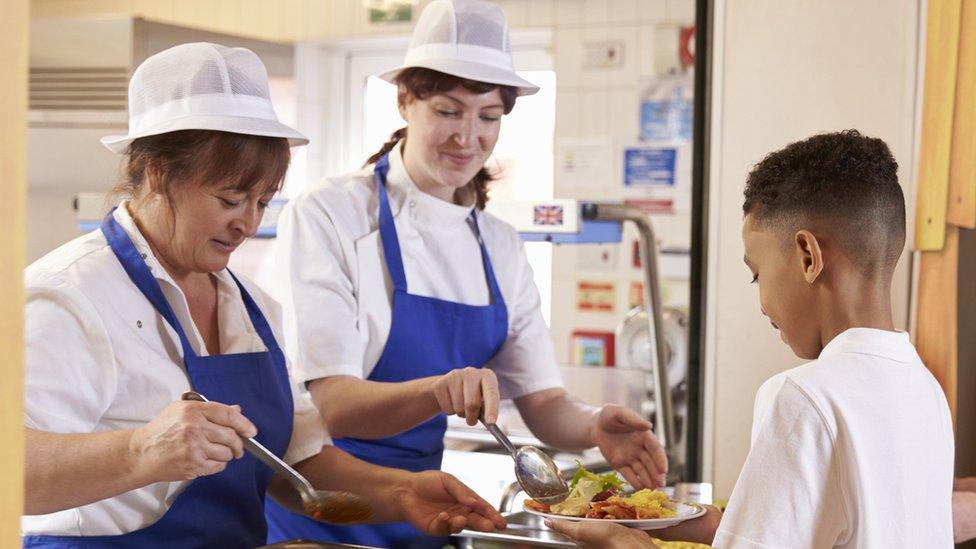
- Published15 February 2024
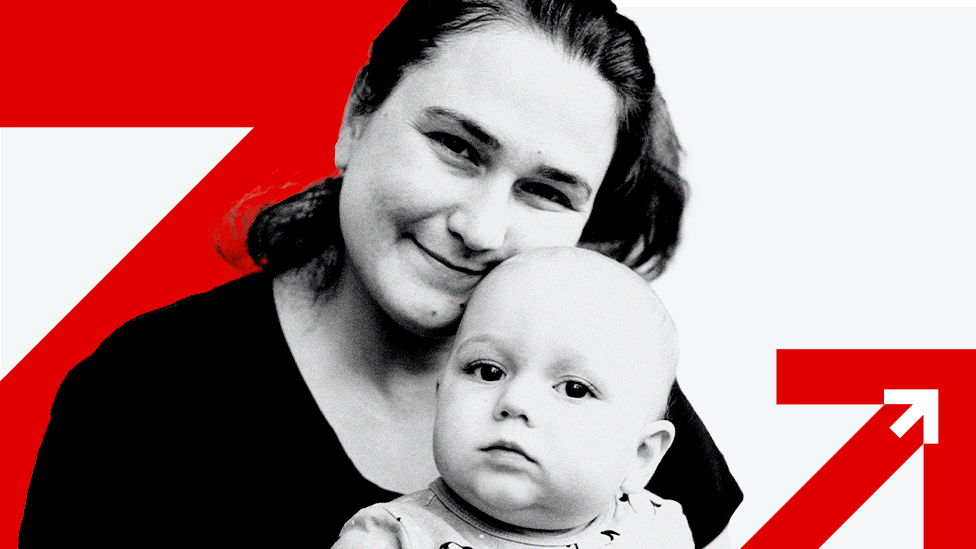
- Published30 May 2022

- Published17 June 2021
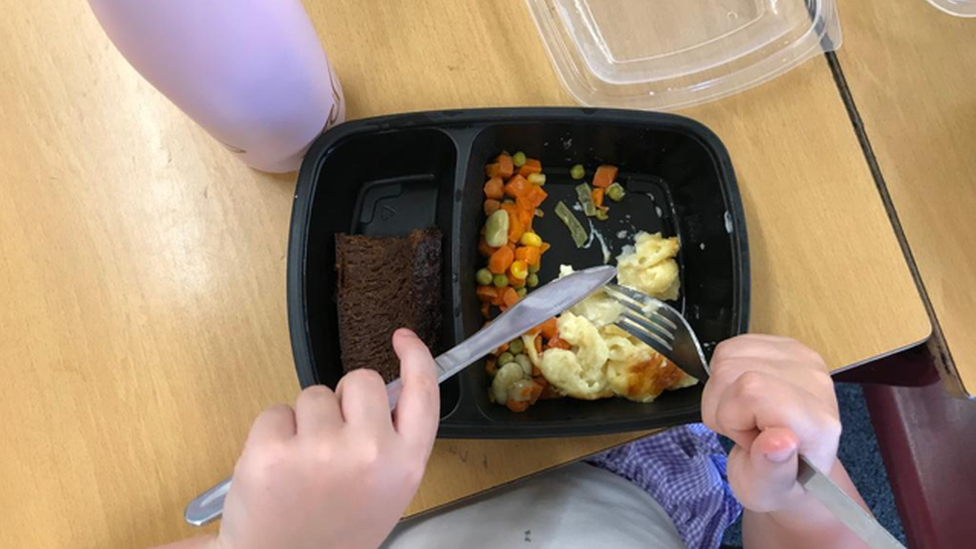
- Published15 January 2021

- Published11 October 2022
